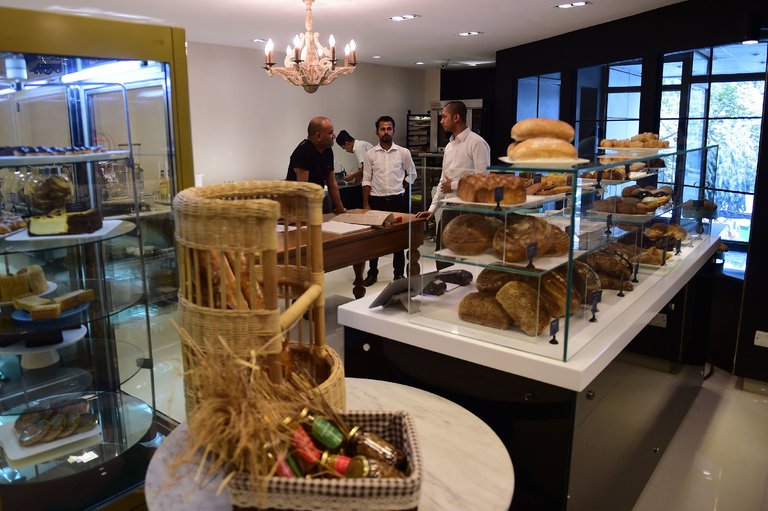DHAKA, Bangladesh — It was nothing special — just a cafe in a shopping mall supermarket — but when an elegant matron named Aisha Sattar walked into the newly reopened Holey Artisan Bakery on Wednesday, a sweet, reminiscent look came over her face, as if she weren’t sure it was all real.
Rocky, one of the waiters, caught his breath when he saw her and trailed off in the middle of a sentence: She was Auntie Nini, one of the regulars. The whole day had been like this. A few customers, an owner said, walked in, stepped behind the counter and wordlessly hugged the staff. One woman burst into tears and bought every last pastry and yogurt carton still on sale.
Six months have passed since anyone thought of the Holey Artisan Bakery with anything but horror.
It was once among the most beloved restaurants in Dhaka, the Bangladeshi capital, situated in its diplomatic quarter and popular with expatriates and locals alike. Until, as the dinner crowd was settling in on July 1, five gunmen burst in carrying heavy bags of weaponry, including grenades and rifles.
Diners and waiters and cooks and busboys scattered throughout the building. The gunmen calmly sorted them, explaining that their intention was to kill only foreigners and non-Muslims. They killed the hostages one by one, using guns and machetes, and used the victims’ phones to publish images of the bodies on social media.
By the time the ordeal ended, 10 hours later, 22 people, including two police officers, were dead, the restaurant spattered with blood and shattered glass.
For months, Dhaka’s diplomatic quarter was a spooked place. Restaurants were empty night after night. Foreigners no longer left the safety of their compounds. Young Bangladeshis found themselves wondering who they could trust: Several of the terrorists came from wealthy, cosmopolitan families, not so different from the young elites who died in the siege.
In an effort to break this trance, the restaurant’s owners decided to reopen the Holey, known for its flour-dusted baguettes and homemade pasta. One of the owners, Ali Arsalan, said he was inspired in part by the staff: When he paid them two months’ salary and suggested they return to their villages to recover from the trauma, they said they would prefer to go back to work.
So when a friend offered him a space in his new supermarket, Mr. Arsalan said, he and his business partner said yes “pretty much within five minutes.”
“What else is there to do except move on?” he said on Wednesday. “No one is going to pay us to sit around and feel bad about what happened.”
Many were thrilled by the decision. “Past terror, past grief, past agony,” exulted Syeda Zareen Rafa, 17, on Facebook.
She has read in the newspapers about young men who have disappeared, perhaps to join militant groups, and she said she worried in the back of her mind that another big attack might happen. But for the moment, she is, as she put it, “ecstatic” that the restaurant is back.
“It felt like a kind of victory or something,” she said.
Still, it was painful remembering. Ms. Sattar — Auntie Nini — was close friends with Claudia D’Antona, an Italian garment executive killed in the attack. Mr. Arsalan’s 20-year-old nephew, Faraaz Hossain, was one of the victims. Rocky the waiter — whose full name is Rakib Ahmed — had, by the luck of the draw, worked the early shift on the day of the siege. For three or four months afterward, he said, he could not sleep.
The new space is different from the two-story lakeside home where the restaurant stood until July 1: It is much smaller, inside a mall, and ringed with security. He said he was not under the illusion that the new restaurant would be like the old one.
“I can’t explain in words how that place felt,” he said. “People would bring their children, their dogs, and they would spend all day there. There won’t be a place like that again, because the grounds are now being used for something else, and because there is a fear in people now.”
He was heartened, though, by the sight of a dozen foreigners who planted themselves at tables over the course of the day; he had not expected them to dare.
“We’ll grow again,” he said. “We’ll show people Holey’s back.”
The New York Times
